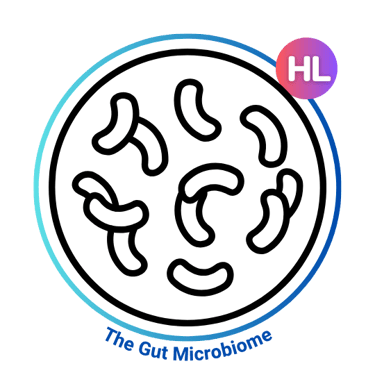





The gut microbiome refers to the vast and diverse community of microorganisms, including bacteria, viruses, fungi and archaea, that live in the human digestive tract. While microscopic in size, their collective influence on human health, immunity, digestion and even mental well-being is immense. The new IB SEHS specification requires students to explore the structure, function, and impact of the gut microbiome on athletic performance and recovery, particularly through its interactions with digestion, inflammation, and nutrient availability.
The majority of gut microbes reside in the large intestine, where they form a dynamic ecosystem shaped by diet, environment, genetics, medication use and lifestyle. A healthy gut microbiome is characterised by diversity, a wide range of different microbial species, and stability, which allows it to perform several critical roles. One of the most essential is the fermentation of dietary fibres and resistant starches that escape digestion in the small intestine. Through fermentation, microbes produce short-chain fatty acids, including butyrate, acetate, and propionate. These molecules play key roles in gut health, reducing inflammation, maintaining the integrity of the intestinal lining and even influencing gene expression.
For athletes, the microbiome’s impact extends far beyond digestion. First, it influences immune function. Around seventy per cent of the immune system is housed in the gut, and the microbiome helps train immune cells, regulate inflammatory responses and prevent the growth of harmful pathogens. An imbalanced microbiome, known as dysbiosis, is associated with increased inflammation and a higher susceptibility to illness and gastrointestinal distress, which is prevalent in endurance sports where gut integrity can be compromised.
Second, the microbiome affects nutrient absorption. Certain bacteria aid in synthesising vitamins such as B12 and K and help extract more energy from complex carbohydrates. Others assist in mineral uptake, including calcium and magnesium, which are crucial for bone health and muscle function. A disrupted gut may reduce nutrient availability, compromising energy levels, recovery and adaptation.
There is also emerging evidence that gut bacteria can affect mental health and stress response through the gut-brain axis, a bidirectional communication system between the gut and the central nervous system. The microbiome can influence the production of neurotransmitters, such as serotonin, and modulate levels of cortisol, the body’s primary stress hormone. This link may help explain how gut health can influence motivation, focus and resilience under pressure.
Diet is the most powerful tool for shaping the microbiome. High-fibre, plant-rich diets that include a variety of vegetables, fruits, whole grains, legumes, and fermented foods promote diversity and microbial balance. In contrast, diets high in processed foods, artificial sweeteners, and saturated fats may reduce microbial diversity and increase the risk of inflammation. Antibiotics, while sometimes necessary, can severely disrupt the microbiome and should be followed by strategic nutritional recovery.
In summary, the gut microbiome acts as a hidden regulator of health and performance. Far from being just a digestive curiosity, it underpins immunity, recovery, mental wellbeing and nutrient efficiency. For any athlete, coach or practitioner aiming for consistent high performance, gut health must be part of the conversation.






